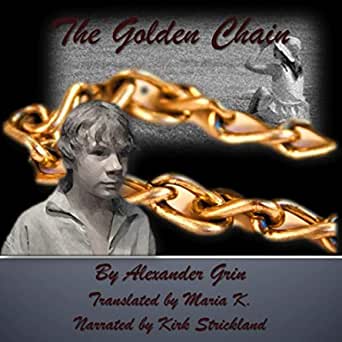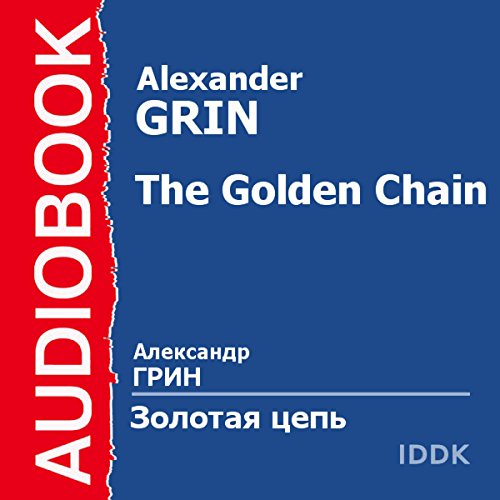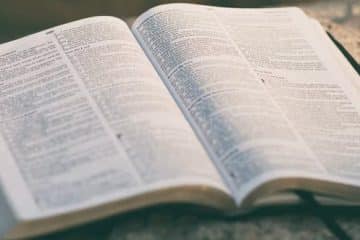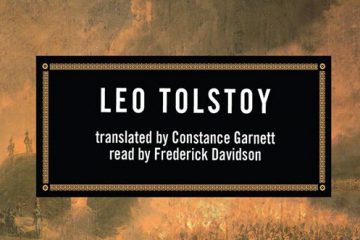 Alexander Grin’s novel The Golden ChainThe pages of Alexander Grin’s biography in the 1920s report the writer’s difficult financial condition. Dreaminess, romanticism of his characters, detachment from the actual problems of our time, and ornateness of the author’s style, all affected the fact that the writer was not understood and not published. However, Green continued to be true to his convictions and style, saying that he did not need such a fast-paced era, but he did not want and could not be different. After the publication of his first symbolist novel, The Shining World, in 1924, Green’s self-confidence grows, and new works are born one after another, taking the reader with them into a world of dangerous adventures and heroes who, following a dream, become happy.
Alexander Grin’s novel The Golden ChainThe pages of Alexander Grin’s biography in the 1920s report the writer’s difficult financial condition. Dreaminess, romanticism of his characters, detachment from the actual problems of our time, and ornateness of the author’s style, all affected the fact that the writer was not understood and not published. However, Green continued to be true to his convictions and style, saying that he did not need such a fast-paced era, but he did not want and could not be different. After the publication of his first symbolist novel, The Shining World, in 1924, Green’s self-confidence grows, and new works are born one after another, taking the reader with them into a world of dangerous adventures and heroes who, following a dream, become happy.
One of the most mysterious works of Alexander Grin of this period is considered by critics to be the novel The Golden Chain, written in 1925 in Feodosia. The author himself described his creative idea as follows: the story of a boy who was looking for miracles and found them.
The character system of the novel “The Golden Chain”
In the novel “The Golden Chain” the author has thought out everything to the smallest detail, every detail appears in the work to reveal the ideological and semantic load or create the individual character of the hero. The system of characters in the novel is quite multifaceted, among which several groups can be distinguished: sailors, inhabitants of the palace, intriguers, and leading characters.
The main characters of the work are Sandro, Duroc, Estamp, Hanover, and Molly. Alexander Grin’s novel “The Golden Chain” is quite contradictory and mysterious, and the question of the main character is no exception. Without a doubt, every reader will identify Sandro as the main character. However, some critics, despite the high semantic and eventful load of this character, consider him a secondary hero and define Hanover as the main one. However, this is only one of the versions. Indeed, all the intrigues and events revolve around Hanover. But the development and formation of the personality, the disclosure of the inner world and aspirations, and the change in reality by one’s actions, that is, all those features that define the main character, are inherent in Sandro.
The system of characters in the novel The Golden Chain The entire storyline of the novel is accompanied by the image of Sandro, on whose behalf the narration is conducted, and we see all the events of the work through his eyes. The young man is the protagonist of all the turning points of the plot. It is he who learns the secret of how Hanover got rich and also reveals the conspiracy of Dige and Galway.
At the beginning of the work, we have a 16-year-old sailor, a little unsure of himself. He is trying to figure out if he is a boy or a man. He gets terribly upset and flares up when he is not taken seriously. To appear older, Sandro revealingly uses swear words. However, his pompous “adult” behavior causes only laughter from those around him. Courage to risky actions, an ardent desire to help others, attempts to correct the situation, and empathy for someone else’s love make a mature and responsible man out of a clumsy youth. After all, helping others, he managed to overcome his vulnerability and resentment, to become wiser and stronger in spirit.
The most controversial image in the novel is Everest Hanover, who is the personification of the ideal hero – rich, but not without humanity. At the age of 28, he becomes a living legend who managed to make an extraordinary dream come true, into a castle in the air and a real magnificent palace. In the abyss of greedy conspiracies, having lost a loved one, he begins to drink and lose his heart. However, he never loses his main gift – the ability to love.
The affirmation of the romantic ideal of the victory of good over evil is impossible without the support of faithful and devoted friends, who were embodied in the novel by Duroc, Prints, and the librarian Pop.
The ideological content of the novel
 The ideological content of the novel the basis of the problematics of the work is the eternal contradictions between the dream and harmony, wealth and simple human happiness. Courage and romantic desire for a dream are beautiful. However, there is a price to pay for everything. The owner of the golden chain, having received everything one could want, was left alone in a huge and crowded house. He became a prisoner of his golden chain. And those to whom he tried to open his suffering heart turned out to be greedy hunters for wealth. Beloved girl Molly is trying to save Hanover from her insatiable brothers at the cost of her own happiness. Thus, Alexander Grin affirms in the novel the true human virtues – honesty, incorruptibility, and love, showing the desire for wealth and power as pathetic and insignificant.
The ideological content of the novel the basis of the problematics of the work is the eternal contradictions between the dream and harmony, wealth and simple human happiness. Courage and romantic desire for a dream are beautiful. However, there is a price to pay for everything. The owner of the golden chain, having received everything one could want, was left alone in a huge and crowded house. He became a prisoner of his golden chain. And those to whom he tried to open his suffering heart turned out to be greedy hunters for wealth. Beloved girl Molly is trying to save Hanover from her insatiable brothers at the cost of her own happiness. Thus, Alexander Grin affirms in the novel the true human virtues – honesty, incorruptibility, and love, showing the desire for wealth and power as pathetic and insignificant.
Growing up the spirit of the character is one of the main ideas of the work. A young boy searching for himself, who tried to understand the world by reading books, watching, and listening, sought to change his life, and become an adult, but did not know how to do it. In the novel “The Golden Chain” the truth is revealed: changes in the manner of communication or appearance will not make it possible to mature in spirit, to become a true man. Only in actions and overcoming one’s own fears and complexes is it possible to become a person.
Analysis of the work
Academic criticism defines the genre of the work as a detective-adventure novel. Many literary scholars agree that The Golden Chain is a story with a detective story. In favor of the story, one can attribute a relatively small volume of the work and a short time period for the course of the described events – the action takes place within 36 hours, which actually contradicts the possibility of calling the creation a novel. However, the more than a developed system of characters in the novel and the gradual development of the protagonist make it possible to define the genre as a novel.
Stylistic affiliation of the work
A controversial issue in literary criticism is the stylistic affiliation of the work “Golden Chain”. In the work, which most researchers consider romantic, there are also features of realism and symbolism.
The first-person narration, the construction of dialogues, and the dynamics of the plot unfold quite in the vein of realism. The ideological saturation of the work corresponds to romantic features that emphasize adventure, riddles, secrets, a fairy-tale palace, intrigues, hopes and dreams, love, and deceit. The author tries to convey the main ideas of the work, however, not in a realistic manner and not even in the traditions of romanticism. The essence of the work is revealed through symbols, as evidenced by the title of the work “Golden Chain”. The iconic images of symbolism are the book “What do we know about ourselves?”, which the young cabin boy reads in the exposition part of the novel, a tattoo with the inscription: “I know everything”, a mysterious palace, secret rooms, labyrinths, coins and, finally, a golden chain.
Biography of the writer Alexander GrinIn the following article, you can read the biography of the writer Alexander Grin, who is considered one of the most prominent novelists of the early twentieth century.
The well-known novel by Alexander Green “Running on the Waves” is another unforgettable story about love, miracle, and romantic adventures.
The work “Golden Chain” is an example of an unconventional author’s style, a type of creative thinking, and masterful use of living language. Reading the dialogues of the work, you involuntarily find yourself on a ship smelling of dampness and fish, in a stuffy crowded kitchen, among the labyrinths of the palace, feeling every hint and detail that the author draws. The Golden Chain by Alexander Grin is one of his magnificent creations, in which a romantic country opens up for the reader, where faith in a dream lives and the beauty of human nature triumphs.







Impressed by the conceptuality and depth of your analysis of this work! I sometimes think that I am the main character of this novel because miracles are happening around me! I am glad that there are so many opportunities in the world, and books allow us to live an unlimited number of lives, and to learn about the author’s experience and his essence, because all books are different, as well as those who wrote them. Thank you!